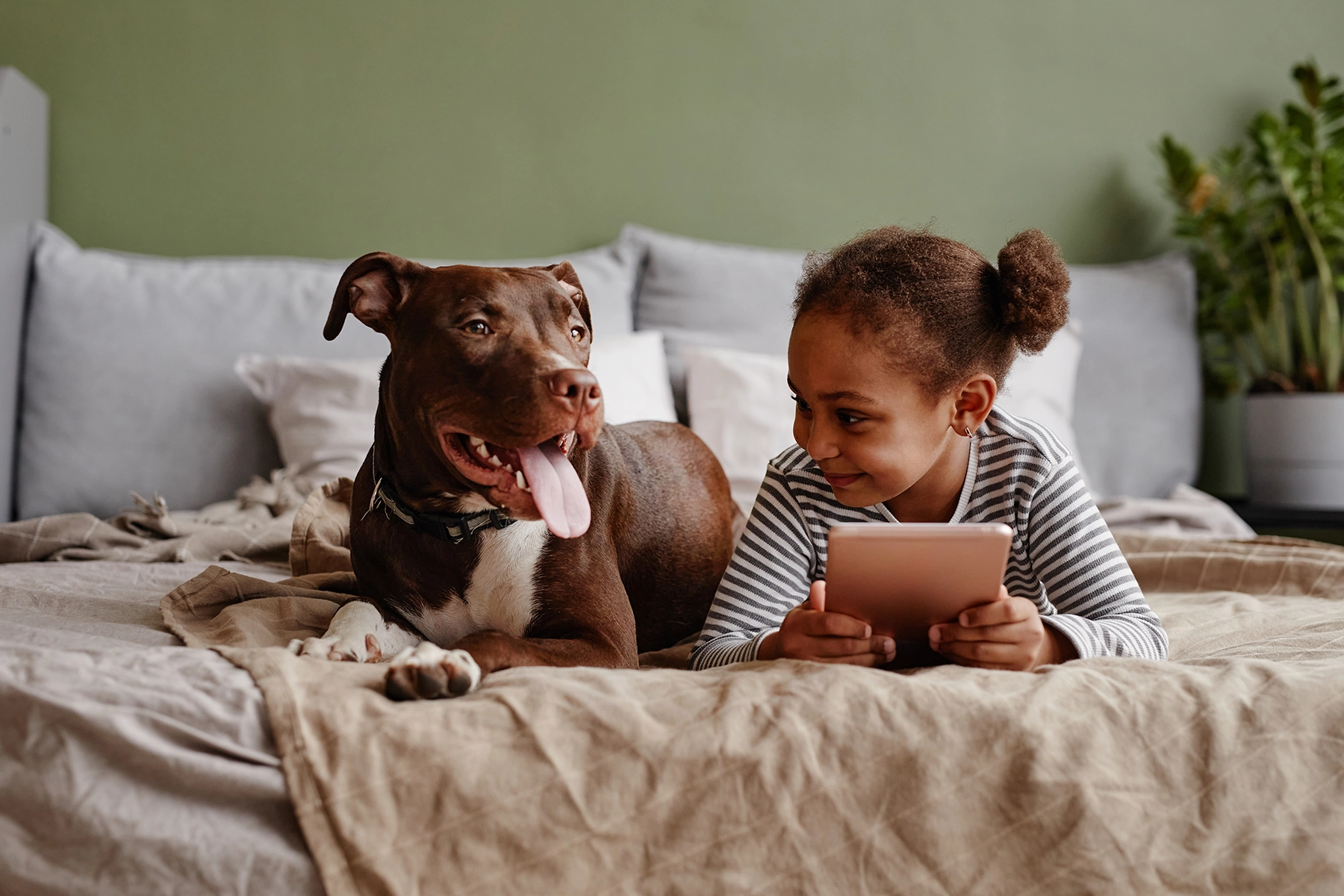Tips to Prevent Dog Bites

Many of us know the line — a dog is a man’s best friend. They add so much love and fun to a family that more than 40% of American families have a dog. Open any social media platform, and you will see tons of reels of adorable dogs and babies bonding. It warms anyone’s heart.
But even the cutest dog can have a bad day.
In the U.S., there are about 4.5 million dog bites each year.
Children are more likely to get bitten by dogs than adults are. Children are also more likely to have more serious injuries, like ones on the head, face, or neck, and often require medical attention.
Children can get bitten by any dog, and most often, dog bites are from animals the child is familiar with.
Here are some tips from the American Academy of Pediatrics on how to prevent dog bites:
- Never leave infants or children alone with a dog, even your family dog. Any dog can bite.
- Kids should be calm around dogs. Do not allow your children to play rough games with a dog, like a tug-of-war.
- Never approach a strange dog that is not on a leash.
- Teach children to always ask the owner before petting any dog. If they say yes, the dog should sniff them first.
- The child should not pet the face or tail. The child should stay gentle and not look in the dog’s eyes.
- Never bother a dog that is sleeping, eating, or caring for puppies. Dogs in these situations are more likely to respond aggressively, even with a person who is familiar to them.
- Teach your child that if a dog is behaving in a threatening manner—for example, growling and barking—to stay calm, avoid eye contact with the dog, and back away slowly until the dog loses interest and leaves.
If a dog bite happens, basic medical care for bite wounds includes thorough cleansing, and the doctor may have to perform additional treatments. Animal saliva contains bacteria that can lead to infection. Antibiotics and specific vaccines are frequently used to treat and prevent these infections.
If your child is bitten by a dog, you should:
- Ask the dog’s owner for proof of rabies vaccination.
- Immediately wash the wound with soap and water.
- Call your pediatrician because the bite could require antibiotics, an updated tetanus shot, and/or rabies shots.
- If your child is severely bitten, call 911 or bring your child to an emergency department for treatment.
If you have concerns regarding your child’s safety or health, reach out to your pediatrician for support.
For more information about how to keep your child safe from dog bites, call the Injury Free Coalition for Kids, a Program of the Children’s Trust, at 305-243-9080 or visit www.injuryfree.org.
Written by Gioconda Reina, MSW
with Julie Belkowitz, M.D., M.P.H., Lyse Deus, M.Ed., and Oneith Cadiz, M.D.
References
U.S. pet ownership statistics | American Veterinary Medical Association (avma.org)
Bula-Rudas FJ, Olcott JL. Human and Animal Bites. Pediatrics in review. 2018;39(10):490-500. doi:10.1542/pir.2017-0212
Dog Bite Prevention Tips, 2018, healthychildren.org, https://www.healthychildren.org/English/safety-prevention/all-around/Pages/Dog-Bite-Prevention-Tips.aspx
Tags: child safety, dog bite prevention, Dr. Julie Belkowitz, Dr. Oneith Cadiz
